This episode is the fourth in a series introducing the providers at Riordan Clinic. Mike Shaw is a Certified Physician’s Assistant and medical provider at the Riordan Clinic in Wichita, KS.
Mike focuses on physiological age and the rate of aging of the body’s major organ systems. He specializes in assessing essential cellular nutrients and replacements, supporting the decline in endocrine system function, bioidentical hormone replacement, and non-surgical weight loss.
Thank You to This Episode’s Sponsor
Episode Transcripts
Intro: This is the Real Health Podcast brought to you by Riordan clinic. Our mission is to bring you the latest information and top experts in functional and integrative medicine to help you make informed decisions on your path to real health.
Leah Chischilly: Welcome everybody to the Real Health Podcast. I’m your host today Leah Chischilly and today I am joined by Mike Shaw, who is a Physician’s assistant at our Wichita location. And this is part of our provider series where you get to know some of the providers at Riordan clinic, because you’re going to be hearing their voices quite a bit on this podcast. So welcome Mike.
Mike Shaw: Thank you. And good afternoon.
Leah Chischilly: Yes. Good afternoon to you. I’m so happy to have you here. So tell us a little bit about your history. What brought you into becoming a physician’s assistant in the first place?
Mike Shaw: I was in the first class of respiratory therapy at WSU and, uh, 1968 or 69. And after I graduated from that, I went to a little hospital in Eldorado, Kansas, Susan B Allan Memorial hospital, and set up their departments for respiratory care and cardiac services. And they are the ones that put me through PA school. And when I completed PA school, I stayed with Susan B. Allen for a while, and then went to work for Galicia medical group cardiology. And, from there I kind of developed an interest in more holistic preventive care and, um, started working more towards health and aging management and longevity, medicine, whatever kind of term you want to coin. And so it kind of brought me down this path.
Leah Chischilly: Yeah. And so how long have you been with Riordan clinic and how did you end up here?
Mike Shaw: Well, I came out here for the grand opening 1975, cause I was always really enthralled with what Riordan clinic was all about and it was so forward-thinking and, but I’ve been out here, started out part-time contract and then went to part-time and then a year ago, went full time.
Leah Chischilly: Yeah. Well, we’re happy that you’re here.
Mike Shaw: I am sure happy to be here also.
Leah Chischilly: Oh, good. Now I know that you, really have a great interest in almost a specialization in anti-aging medicine or aging well, as you talked about, can you tell me a little bit more about that and some of the therapies and some of the things that includes?
Mike Shaw: Sure. Actually, I started a clinic called Age Reversal Technologies and that was of the starting point of moving forward, but I’ve been interested in how do you maintain youthful functionality and freedom from disease and stay younger as long as possible, and got involved with an organization called the American Academy of Anti-aging medicine. The year after they founded, that was in 1994 and I’ve been to every conference every year. And there are other conferences are totally focused on what we do to rejuvenate and renew and restore more useful function in the human body, hopefully avoiding the onset of diseases and disability, and internment. So I also got involved with Dr. Joseph Raffaele and his group Physioage in New York. And they are the ones that kind of developed and launched this physio age system. It’s an advanced medical examination model that allows you to evaluate different systems in terms of their physiological age versus the individuals chronological age.
And I, well, ever since I got involved with it, I have been just really infatuated with it and think that it’s such a good platform to use with people to identify where their strengths and their weaknesses are. It’s kind of like an advanced executive-type profile. Like you would go to Mayo Clinic or Cleveland Clinic, but this looks for more than just pathology. It’s actually looking at where people are at and what stage they’re at and what we can do to slow or reverse processes that were, we don’t have to be hunting for the disease. So I, it’s been a very big passion and interest of mine, and I like being out here because we have a clientele that is well-suited for this kind of advanced medical model, so to speak.
Leah Chischilly: Yeah, absolutely. And prevention is, in my mind, one of the most important things, but I think sometimes a lot of people, they don’t think about that and they don’t seek support until symptoms start to appear. What kind of advice would you give to those people or how would you encourage people to seek preventative measures or to maybe look at their physio age versus their chronological age?
Mike Shaw: Well, yeah, in the earlier days we worked on, you know, identifying health, risk factors, lifestyle choices, dietary preferences as a gauge to kind of let people know what track they were going down and where it would end. And, um, you know, now we can do it more sophisticated with these testing models, but I think that everybody starting in their twenties should have a baseline, at least on a comprehensive lab evaluation that shows you that at your best, before anything has occurred for your levels are at, so that you have something to compare to downstream when the time clock keeps ticking forward to see, well, how far have I drifted? And instead of just reactively, waiting for something bad to happen and then rush around trying to deal with it.
Leah Chischilly: I think that’s great advice. So all of you 20 year olds listening, go and get that baseline. This is something that I wish that I did a long time ago. Um, and I was lucky enough to become a patient at Riordan clinic a few years back when I wasn’t feeling terrible, but I wasn’t feeling great. And just having that baseline measurement and getting a full picture of what was going on inside was so helpful. And it kind of set me on a trajectory of, you know, seeking out ways to feel better and better and better, and as a result, prevent disease. So I think that’s great, great advice. Yeah.
Mike Shaw: You know, professing that an advanced preventive medicine model should always be based on established a baseline when you’re at your best, instead of waiting until something bad happens and then you’re scrambling around because you really don’t have any idea where you were and what things look like on that baseline, what I call portrait. So I like the idea of just because you feel great and you’re healthy and you’re only 22 or 24. That’s the perfect time.
Leah Chischilly: I love that idea. Hopefully we can get more people on board, uh, considering that at that age. So just curious though, because I don’t think a lot of 20 year olds are that forward thinking at this point, um, what do you have a particular demographic or age range that often come in for that type of thing?
Mike Shaw: It’s never too late. And I, I have a lot of very proactive individuals that they ended up showing up in their mid to late thirties because they’ve kind of started to notice that, you know, I still feel good, but I’m not quite clicking and performing at the same level. It’s starting to kind of come to the surface and be a little bit obvious and they’ll come in and well, let’s, let’s find out kind of what’s going on. And then I always tell them though, whether, you know, ideal would be that if you’d come in at 22 or 25 and we’d done a baseline portrait, we could tell you exactly how much change and to what degree and in what areas it’s happened so that we could really narrow in and focus on those key areas. You can still do it even if you’ve not had a baseline done, obviously, but, um, it’s a little bit more general and not quite as specific, but it can still cover all of the bases and identify here are the areas we need to,
Ad: There’s a lot more to this conversation and it’s coming up right after it. Quick break today’s episode of the real health podcast is brought to you by the Riordan clinic nutrient store.
The nutrient store is your resource for the highest quality nutritional supplements. Every supplement in the store is handpicked by the expert medical staff at Riordan clinic, providing you with the best quality purity, consistency and effective dosing available. Visit store.Riordanclinic.org to shop online.
Leah Chischilly: Now, do you notice any trends with that? Um, are there areas that are more prevalent than others that need more work in people or is it kind of all over the board?
Mike Shaw: Well, There appears to be trends in males and females, hormone changes earlier instead of later in life, which, uh, can set you up to trip and fall. And I just don’t mean from a sexual perspective either. I mean, many of the hormones that make up men and women also are focused definitely on physical performance and restorative ability after over exertional activity. And so I see a lot of drift and younger men and women having lower levels of hormones. Uh, one of them that people don’t even know about it’s pregnenolone. Pregnenolone appears to be becoming a very low hormone. And it’s the first hormone in the whole cascade of all of your, um, endocrine system hormones. It also plays a very big role in cognitive cognition and cognitive memory function. So
Leah Chischilly: That’s interesting. Now, is there anything that you think is contributing to that specifically, or is it kind of a Whole plethora of things?
Mike Shaw: I suspect that environmental changes, um, industrial pollution, changes in farming, mass farming, the use of many more chemicals, pesticides, herbicides, and stuff that can take on a hormonal perspective on their own that can set people up to both men and women to have problems. And that’s not a new concept that was a concern 10 years ago, but I don’t know, we’ve cleaned up the environment that much over the last 10 years, maybe it’s worse, but I think those kinds of things are an issue.
Leah Chischilly: Yeah. I would definitely agree with that. Now, are there things that people can do in general to kind of help that hormone balance naturally? Or is it something that requires medical interventions?
Mike Shaw: Well, it kind of depends on where your numbers are. I mean, hormones is one of the things that I start looking at in men and women in their mid thirties, because like in women, a lot of times in their late twenties to late thirties, they’ll go to their doctor and they’ll complain about being kind of moody, irritable, depressing feeling. And they end up walking out of the doctor’s office with a script for an antidepressant when many times it’s that abrupt change in the level of progesterone, which is kind of the body’s natural sleep mood enhancer. So, um, yeah, I like looking at hormones in both men and women earlier and try to take care of it naturally, rather than pulling out the script pad and writing for synthetic drug products.
Leah Chischilly: Are there certain lifestyle habits that people can adopt to help keep things a little more imbalanced?
Mike Shaw: Well, I, I think, uh, a good clean, healthy diet, you know, there’s and moving away from unhealthy fats and too much of a carbohydrate load and focusing on a more regimented regular pattern of physical activity. Um, and I said, physical activity, I think just movement. It doesn’t have to be some big time regimented workout regime by one of the stars. Um, just being more active and, and having focus on trying to maintain a fairly decent body weight because obviously the weight gain issue in this country and around the world is rather significant. And the metabolic and dysfunctional aspects of, of that weight gain is what sets a lot of people up for Um, earlier onset medical issues then would they’d have to experience
Leah Chischilly: Very good. So movement, a good diet, maintaining a healthy weight. So as you know, the name of this podcast is the Real Health podcast. And so I like to ask everyone who’s a guest. What is your definition of real health?
Mike Shaw: My definition of real health. I think real health is being able to be balanced, be in harmony, be active, have energy, have clarity of focus, and to be able to do things in a manner that allows you to maintain that long-term.
Leah Chischilly: And what are some of the things that you do to maintain your own real health?
Mike Shaw: Well, I really liked dietary intervention. I really like, uh, I take a lot of supplements. I move a lot and I used to, I used to do long-distance running and biking, but I’ve kind of backed away from that more, just longer duration movement up and out of a chair, whether it’s putting in a garden in the backyard or taking all my animals for a walk, but moving don’t sit and sitting in front, not sitting in front of a TV or just being a lounge, so to speak.
Leah Chischilly: Very good advice. Well, thank you so much for joining me today, Mike, and I know that everyone will be hearing a lot from you in coming episodes. So anything else you’d like to share?
Mike Shaw: I don’t think so. I think I have a wonderful weekend and we’ll get ready for a new week next week.
Leah Chischilly: All right. Sounds good. Thanks Mike.
Mike Shaw: Thank You. Thank you for letting me be here.
Outro: Thank you for listening to the real health podcast. If you enjoy this episode, be sure to subscribe and leave us a review. You can also find all of the episodes and show notes over at realhealthpodcast.org. Also be sure to visit Riordanclinic.org, where you will find hundreds of videos and articles to help you create your own version of real health.


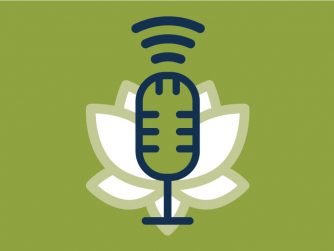
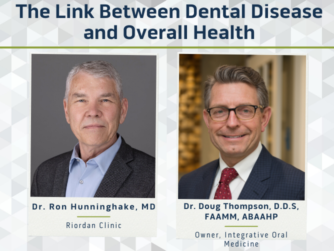
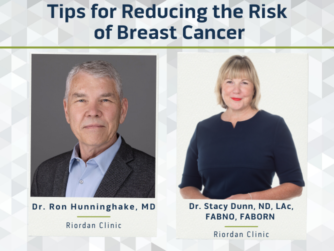
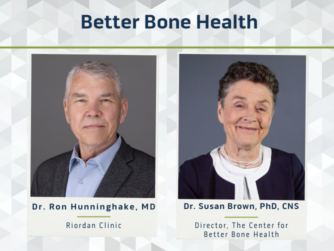
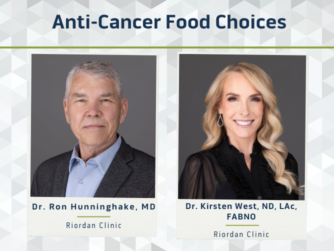
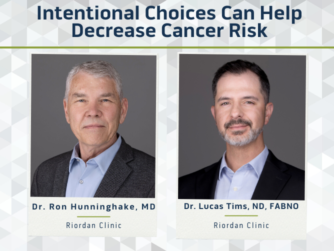
Very informational and easy to understand! Love that you have started podcasts-great way to get valuable information on my schedule. Dr. Shaw is so knowledgeable and honest.
Awesome
Great job thanks for the advise! Get up and move!